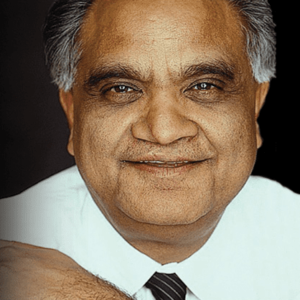6. Remove the blockages. Even if you educate yourself about digitization and the consumer, your own psychology can trip you up in the following ways:
7. Don’t be a wimp. Ultimately, going on the offense is a test of your courage. Do you have the guts to make a big move? Intellectualizing is one thing; having the courage to pull the trigger is another. As Dean Stamoulis, head of global leadership and succession services for executive search firm Russell Reynolds Associates puts it: “Savoring complexity and processing it intellectually is a learned skill that needs to be well developed. But the capacity to act is a reflection of self-confidence—not behavioral boldness or arrogance but genuine authentic self-confidence about one’s ability to figure things out and deal with the consequences. That self-confidence is vitally important when the unexpected occurs.”
We can never completely eliminate uncertainty. Doing nothing can be risky in itself and there will always be unknown unknowns—risks you don’t even know exist despite careful thinking.
But building your perceptual acuity, being able to spot the opportunity in uncertainty, having the willingness to forge a new path and commit to it as well as the adeptness to manage the transition—those are the leadership skills absolutely necessary in these, the most uncertain and fast-changing times.

Chief Executive Group exists to improve the performance of U.S. CEOs, senior executives and public-company directors, helping you grow your companies, build your communities and strengthen society. Learn more at chiefexecutivegroup.com.
0

1:00 - 5:00 pm
Over 70% of Executives Surveyed Agree: Many Strategic Planning Efforts Lack Systematic Approach Tips for Enhancing Your Strategic Planning Process
Executives expressed frustration with their current strategic planning process. Issues include:
Steve Rutan and Denise Harrison have put together an afternoon workshop that will provide the tools you need to address these concerns. They have worked with hundreds of executives to develop a systematic approach that will enable your team to make better decisions during strategic planning. Steve and Denise will walk you through exercises for prioritizing your lists and steps that will reset and reinvigorate your process. This will be a hands-on workshop that will enable you to think about your business as you use the tools that are being presented. If you are ready for a Strategic Planning tune-up, select this workshop in your registration form. The additional fee of $695 will be added to your total.

2:00 - 5:00 pm
Female leaders face the same issues all leaders do, but they often face additional challenges too. In this peer session, we will facilitate a discussion of best practices and how to overcome common barriers to help women leaders be more effective within and outside their organizations.
Limited space available.

10:30 - 5:00 pm
General’s Retreat at Hermitage Golf Course
Sponsored by UBS
General’s Retreat, built in 1986 with architect Gary Roger Baird, has been voted the “Best Golf Course in Nashville” and is a “must play” when visiting the Nashville, Tennessee area. With the beautiful setting along the Cumberland River, golfers of all capabilities will thoroughly enjoy the golf, scenery and hospitality.
The golf outing fee includes transportation to and from the hotel, greens/cart fees, use of practice facilities, and boxed lunch. The bus will leave the hotel at 10:30 am for a noon shotgun start and return to the hotel after the cocktail reception following the completion of the round.